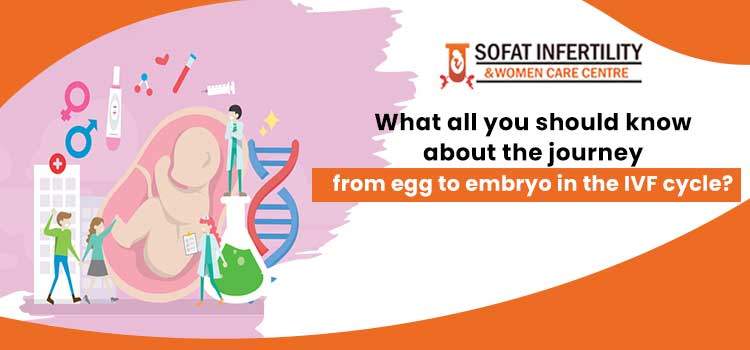The journey from Egg to Embryo
In case you are planning to conceive, then undergoing IVF treatment will improve your conception chances. Visiting the best IVF centre in Punjab will help you understand the treatment plan and how it will work for you. If you are worried about the IVF cost, then you should talk to the fertility expert and he will tell you how it can be managed. Although the cost of IVF treatment differs from case to case. Let’s talk you through the journey of the egg to embryo.
Ovulation
Each month, one of the ovaries’ mature eggs is released. This process is referred to as ovulation. Ovulation occurs 2 weeks after the woman’s menstrual cycle has lasted.
Moving to the fallopian tube
The egg released from the ovaries reaches the fallopian tube and there it will meet the sperm and will result in fertilization.
Sperm journey
When a man ejaculates, around 40 to 150 million sperm are present in the fluid. Later they start swimming in the reproductive tract and move to the fallopian tube. The total time needed for the sperm to reach the egg is different and some of them might reach there in just 30 minutes and the rest of them can take days. Sperm can live there for 48 to 72 hours. The ones which reach close to the egg are just in hundreds.
Fertilization: Sperm Penetrates Egg
Fertilization is completed within 24 hours. Once the sperm meets the egg the changes are made and this won’t let any other sperm come in.
The Cells Start to Divide
Once the egg is fertilized, the division process begins. Following that, it will leave the fallopian tube and reach the uterus after 3 to 4 days. In some cases, it can result in ectopic or tubal pregnancy which happens when it does not enter the uterus.
Implantation
Implantation is the method in which the egg is fertilized and then it is attached to the endometrium. Later, the fertilized eggs are going to divide.
Pregnancy Hormones
Human chorionic gonadotropin (HCG) is one of the hormones which the cells produce and later they take the shape of the placenta. Its presence is in the mother’s blood and it can be checked within 2 weeks the women have conceived. The doctor will ask you to get a pregnancy test which is done through urine or blood tests.
Fetal Development
Following the implantation, some of the cells take the shape of the placenta and some of them are formed as embryos. You can notice the heartbeat during the 5th week. In the 8th week, the embryo is developed and later forms the uterus. When the fetus reaches the 8th week it is constantly growing.







